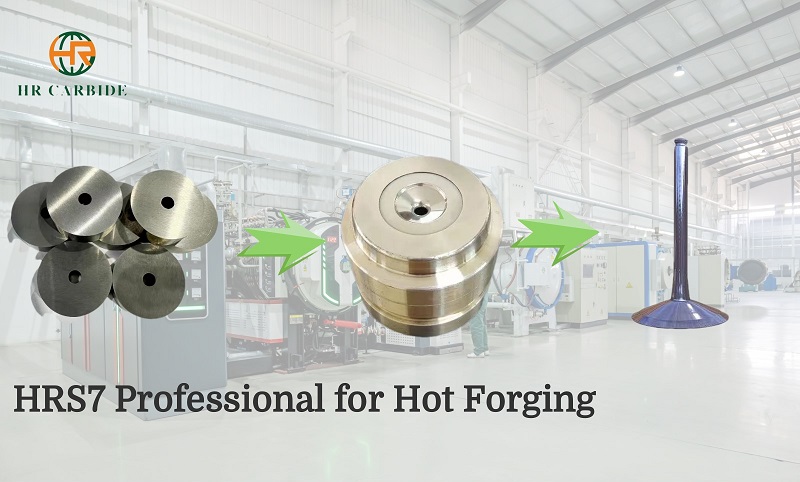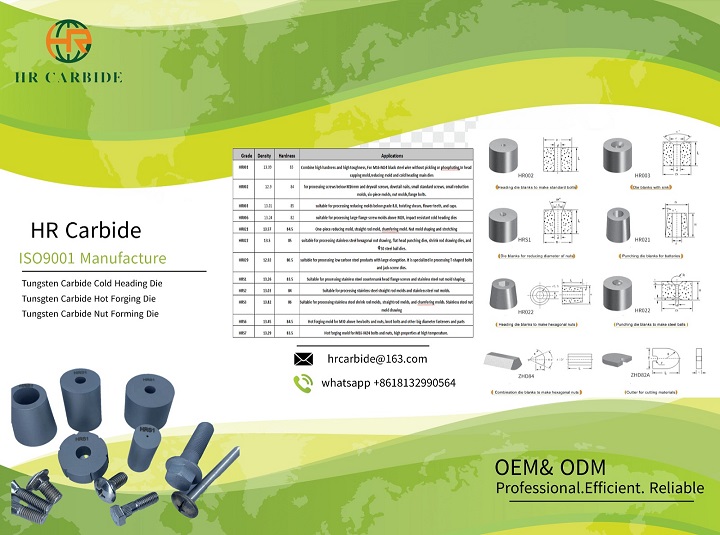Tungsten carbide is a remarkable material known for its exceptional high-temperature resistance, making it an ideal choice for a wide range of industrial applications. From hot forging dies to nut molds and high-precision valve ejector molds, tungsten carbide plays a crucial role in ensuring the efficiency and durability of various manufacturing processes. Its ability to withstand extreme heat and pressure makes it a valuable asset in the production of high-quality components for industries such as automotive, aerospace, and oil and gas.
One of the key applications of tungsten carbide hot forging dies, where it is used to shape and form metal components at high temperatures. The superior thermal conductivity and high melting point of tungsten carbide make it an excellent choice for withstanding the intense heat generated during the forging process. This results in longer tool life and improved productivity, ultimately leading to cost savings for manufacturers. Additionally, the high wear resistance of tungsten carbide ensures that the hot forging dies maintain their precision and dimensional accuracy over extended periods of use.
In the production of nut molds, tungsten carbide‘s high-temperature resistance and hardness are essential for achieving precise and consistent results. Nut molds are subjected to significant thermal and mechanical stresses during the molding process, and tungsten carbide’s ability to maintain its structural integrity under these conditions is crucial for ensuring the quality of the molded nuts. The exceptional wear resistance of tungsten carbide also contributes to the longevity of nut molds, reducing the need for frequent replacements and minimizing downtime in production.
High-precision valve ejector molds require materials that can withstand the demanding conditions of injection molding processes. Tungsten carbide’s resistance to thermal fatigue and deformation makes it an ideal choice for producing intricate and high-precision components such as valve ejector molds. Its ability to maintain dimensional stability and resist wear under high temperatures ensures the consistent production of high-quality valve components, contributing to the overall efficiency and reliability of industrial valve systems.
In conclusion, the versatility of tungsten carbide in high-temperature resistance applications is undeniable. Its exceptional properties make it an indispensable material for the manufacturing of hot forging dies, nut molds, high-precision valve ejector molds, and various other critical components. As industries continue to push the boundaries of performance and efficiency, tungsten carbide will undoubtedly remain a key player in meeting the demands of high-temperature manufacturing processes. Its ability to withstand extreme conditions while maintaining precision and durability makes it a valuable asset for a wide range of industrial applications.
Post time: Jun-16-2024











